From 13-17 October, Module 5 of the Timor-Leste Palliative Care Training marked another milestone in the nation’s journey toward accessible, compassionate care for all who need it. The five-day training, conducted by the Asia Pacific Hospice Network (APHN) — Dr Sylvia McCarthy, Dr Dipti Mittal, Dr Ann Toh, Joan Ryan, Rachel Stephen, and Hamizah Salim — in collaboration with local faculty Dr Mingota Herculano, was a testament to conviction and shared purpose.
As a 23-year-old independent nation, Timor-Leste continues to demonstrate remarkable determination in building healthcare systems that respond to the evolving needs of its people. The energy and heart that filled the sessions throughout the week reflected more than a transfer of knowledge. It signified a movement taking root.
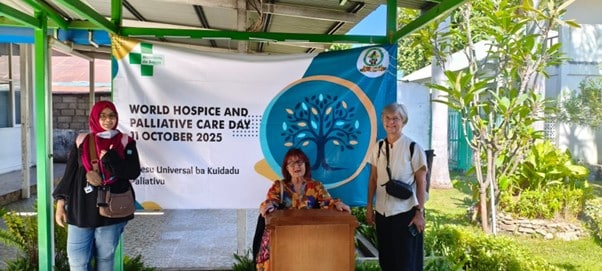
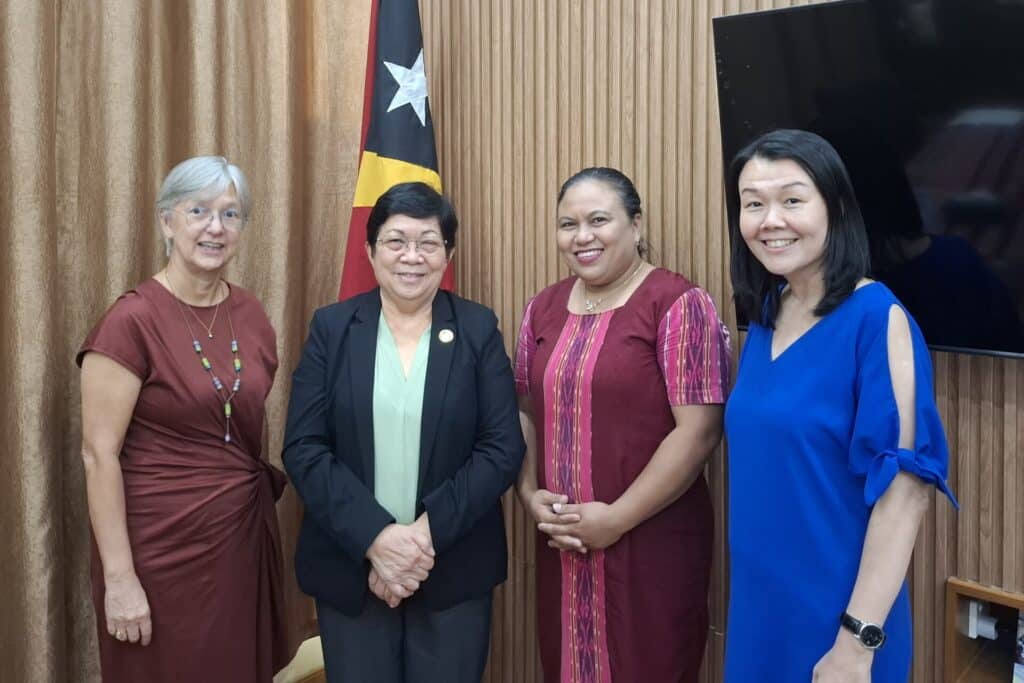
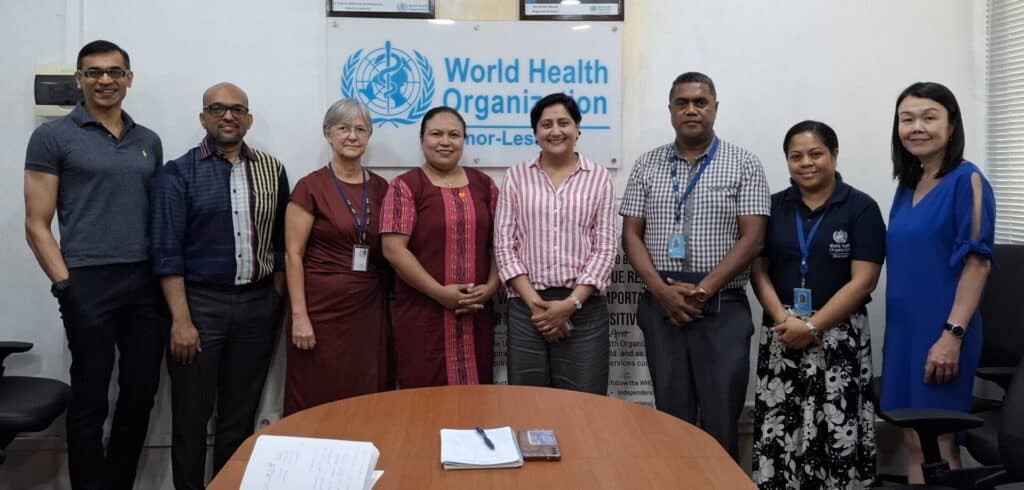
Dr McCarthy opened the week with enthusiasm and authenticity, setting the tone for learning grounded in connection and purpose. Beyond her thoughtful teaching, she took every opportunity to engage with local national leaders and WHO representatives, bridging policy aspirations with on-the-ground realities. Her genuine attention to both people and process captured the essence of this programme: building skills while strengthening relationships.
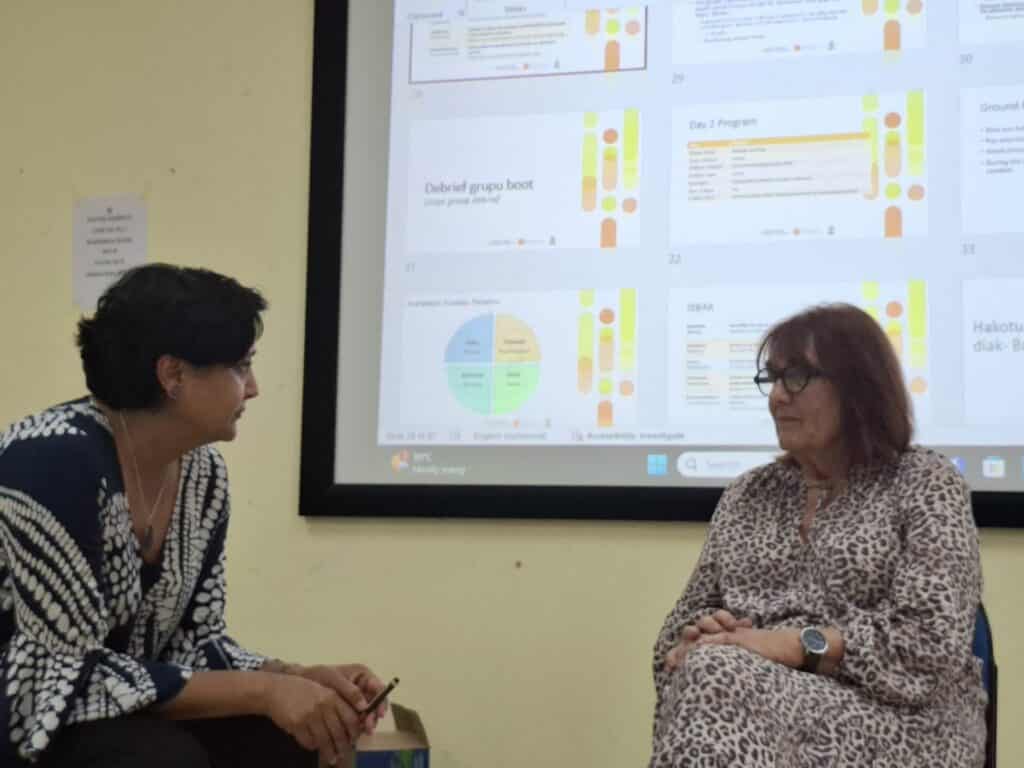
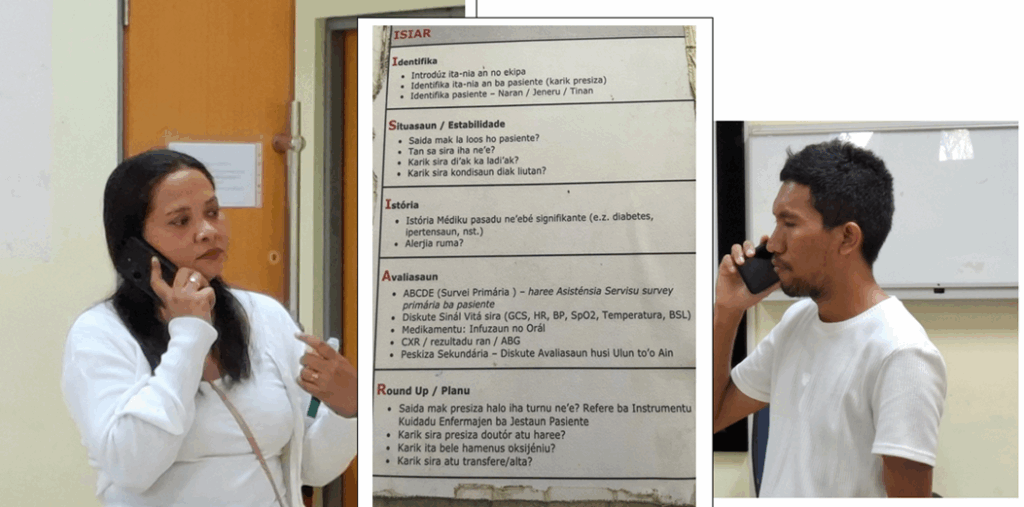
Dr Mittal, with infectious clarity and empathy, tackled one of palliative care’s most misunderstood topics — opioid use. Through facts, open dialogue, and real-life cases, she guided participants to see opioids not as a source of fear but as tools for compassionate relief. Her effort to demystify opioid use gave new confidence to the local doctors and nurses, empowering them to speak with assurance when caring for patients in pain.
Dr Toh brought creativity and cultural sensitivity into every teaching moment. Her curated role-play scenarios rooted in Timorese contexts — from breaking bad news to ISBAR handovers — allowed participants to practice communication with meaning and respect. Supported by translation into Tetum with the help of a local physician friend, her sessions reminded us that effective care begins with understanding one another’s stories.
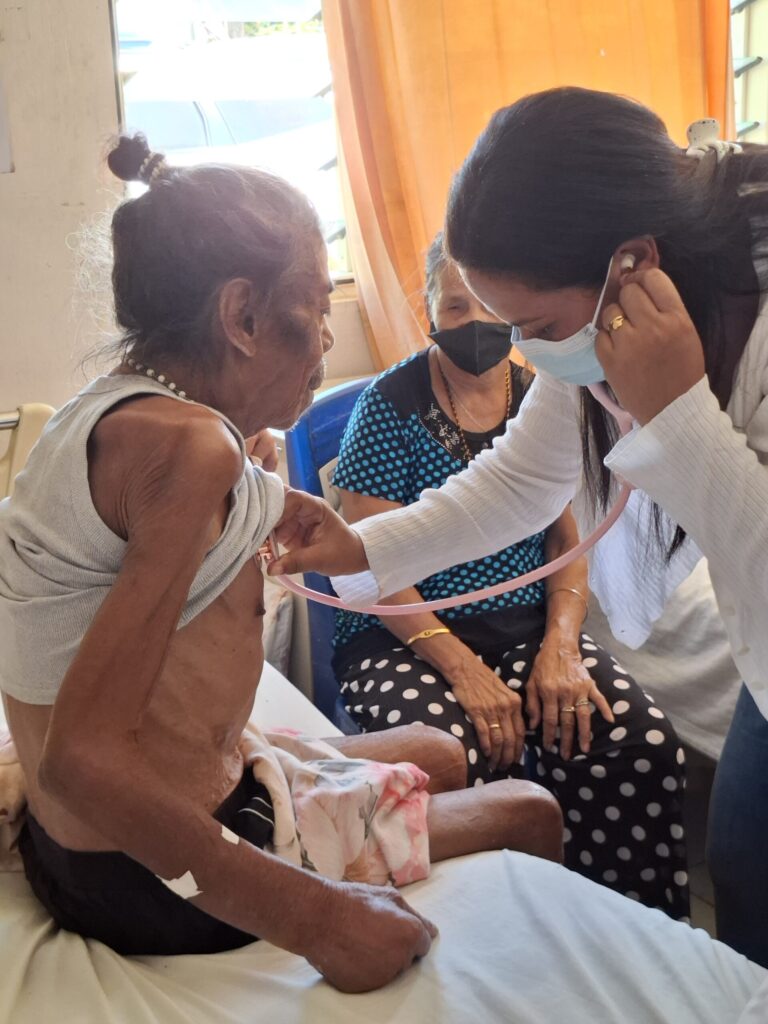
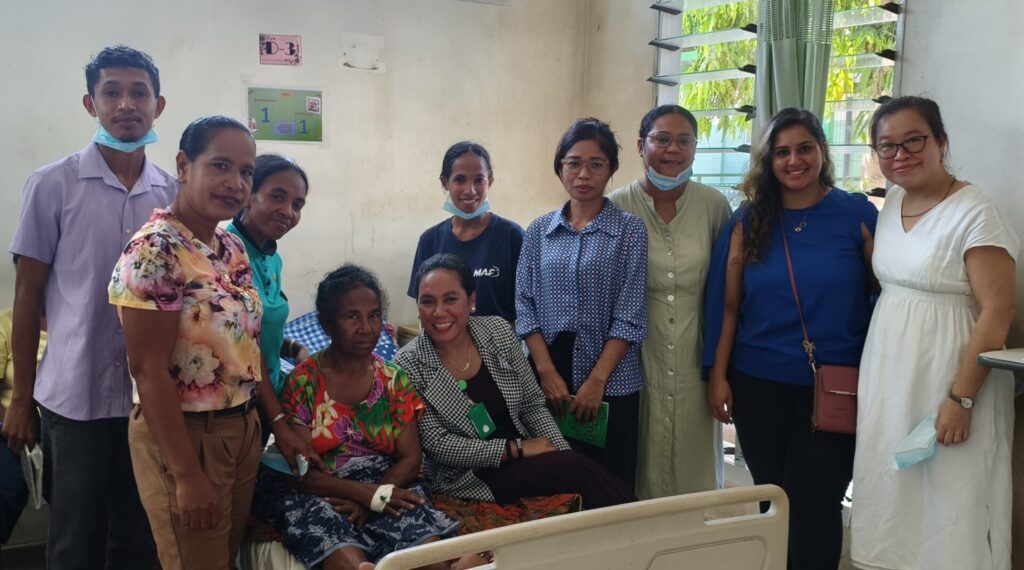
Ms Stephen’s resilience carried through the week despite her initial gastritis symptoms. Her resolve to engage in bedside teaching and group facilitation did not go unnoticed. Her gentle, lively interactions helped even the shyest participants find their voice, adding warmth to the learning environment.
Ms Ryan and Ms Hamizah went beyond classroom teaching, accompanying a local team on two evening home visits to a young child. These visits shed light on the cultural, emotional, and logistical challenges of home-based care, giving the team a deeper understanding of the community realities shaping palliative care delivery. Their dedication, often ending late into the evening, exemplified the heart of palliative care: to walk alongside families where they are.
The week’s momentum had already been built earlier, when our faculty joined the WHPCD event on 11th October at Hospital Nacional Guido Valadares (HNGV). Standing among Timorese healthcare workers celebrating their growing program was a moment of pride and solidarity. Local champions, including Dr Isidoro, Dr Sujana, and Dr Celestin, shared inspiring testimonies from radio advocacy to everyday acts of compassion at the bedside. These remind everyone that palliative care begins with one person choosing to make a difference.
Behind the scenes, Dr Herculano remained the vital link between faculty and the local teams — driving, organizing, meeting with national and WHO leaders, and ensuring every logistical detail was seen to. Her tireless dedication anchored the week’s success.
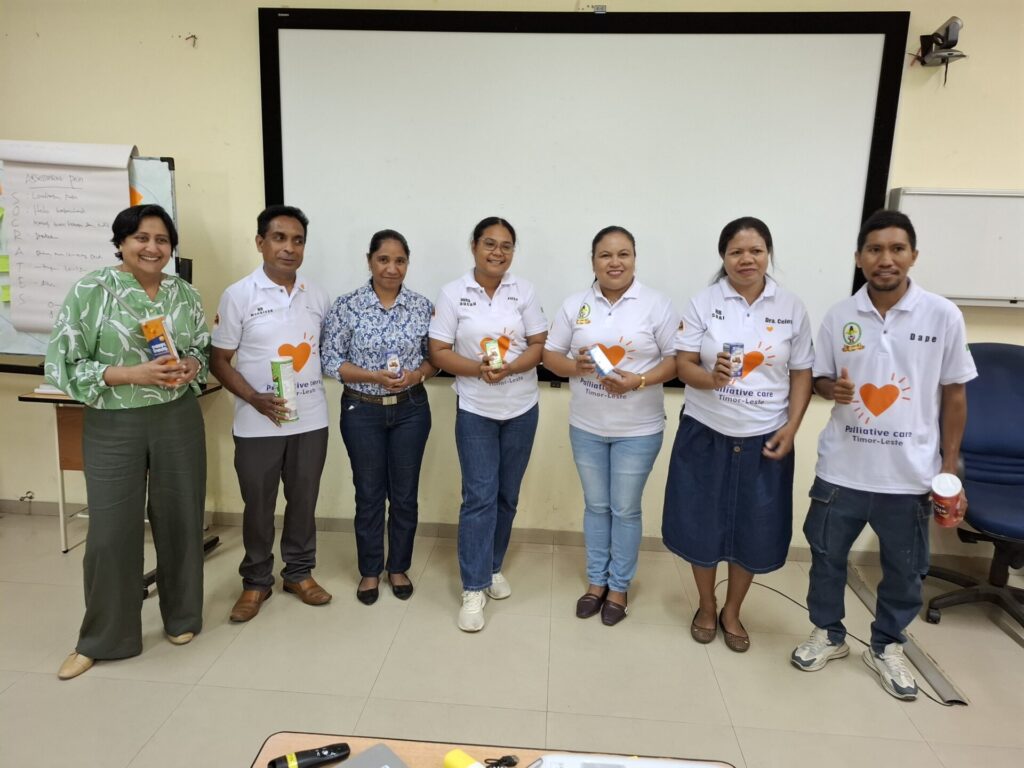
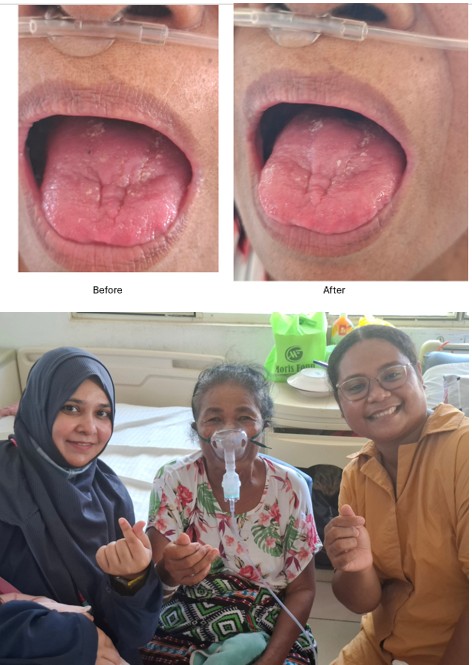
The module concluded with a renewed sense of purpose — to prepare participants for their roles as palliative care leaders in their respective centres. Facilitator groups were formed, each committed to continuing training, mentoring peers, and engaging their wider communities. Through ongoing activities in pain management, ethical reflection, bedside teaching, and communication skills, these emerging leaders are equipped to strengthen local practice and foster a network of care that is both sustainable and deeply rooted in Timor-Leste’s own context and values.
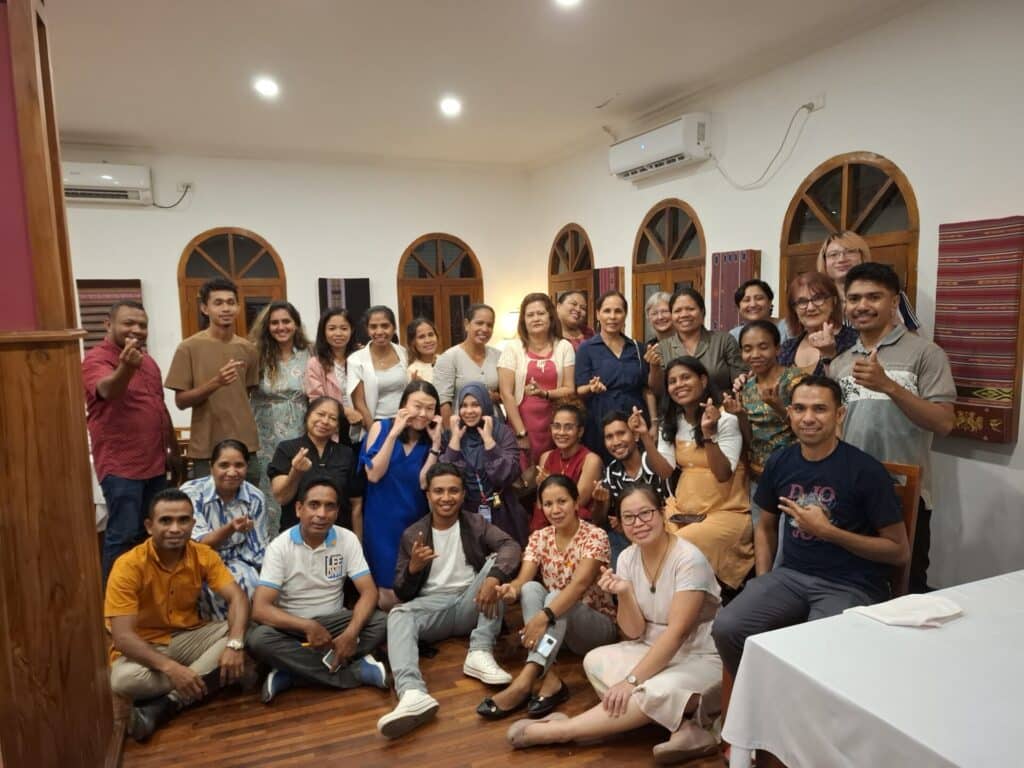
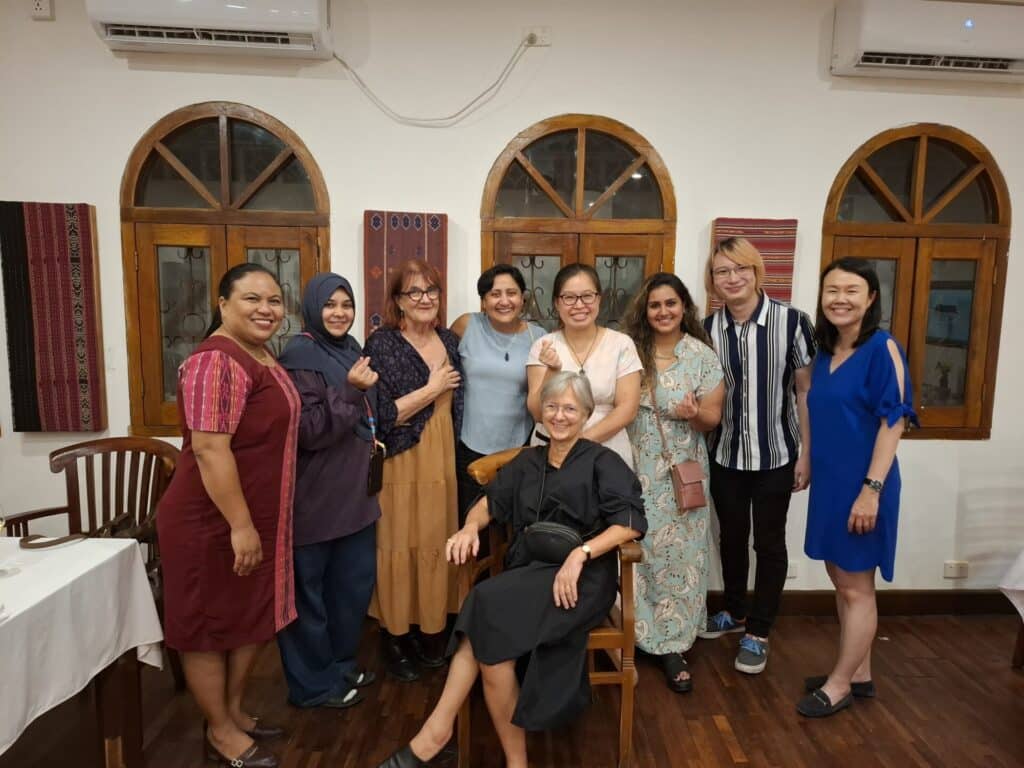
In every exchange, the conviction of the team and the resilience of the local participants shone through. Each act — teaching, learning, sharing meals, visiting homes — reflected the simple truth of our mission: that progress in palliative care is made quietly but surely, through hearts aligned and hands that serve with purpose.
Written by Ms Cheyenne Chai, APHN Executive
